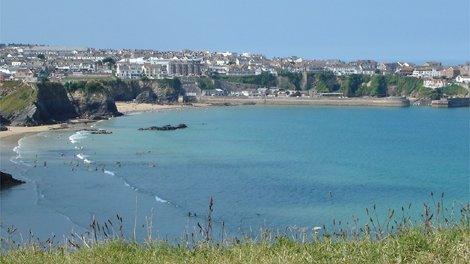Newquay reinvented: ‘You stopped finding knickers in your garden’
- Published
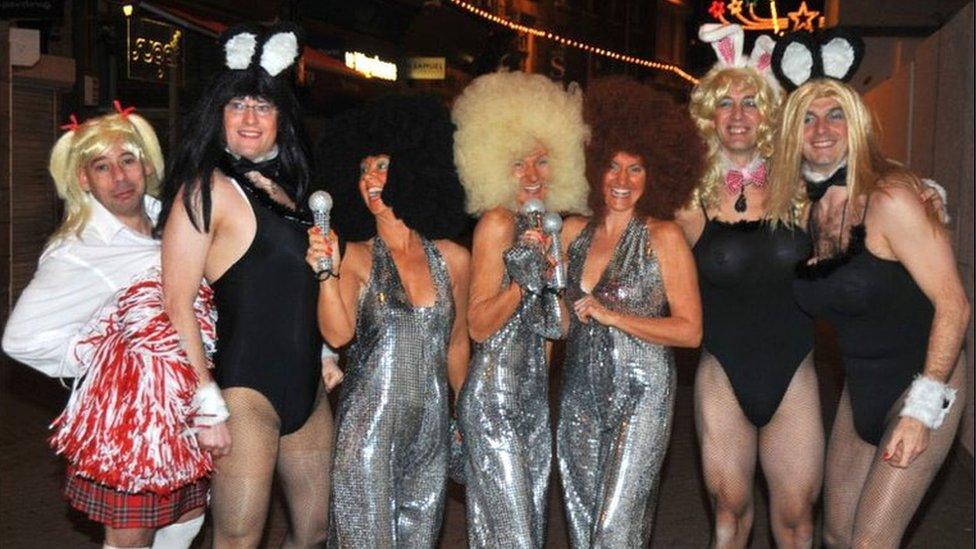
Newquay remains a popular destination in the summer months and is also a focus of New Year's Eve celebrations
In the summer of 2009 Newquay's image was in tatters. The town was known as a hardcore party resort where anything went. Thousands of teenagers made post-exam pilgrimages to the Cornish coast to drink until they passed out, while gangs of stags and hens marauded through the streets, making the town a no-go area after dark for families and couples.
Then two teenagers died falling from cliffs, while a third was seriously injured - all in the space of a few days. Suddenly time was up on Newquay's days of dangerous debauchery.
"I can't describe what it was like when the under-18s were coming," says Tracy Earnshaw, who was involved in campaigning to change the culture of the resort.
"Indecent exposure was the norm. You used to ring Newquay police and not get much response."
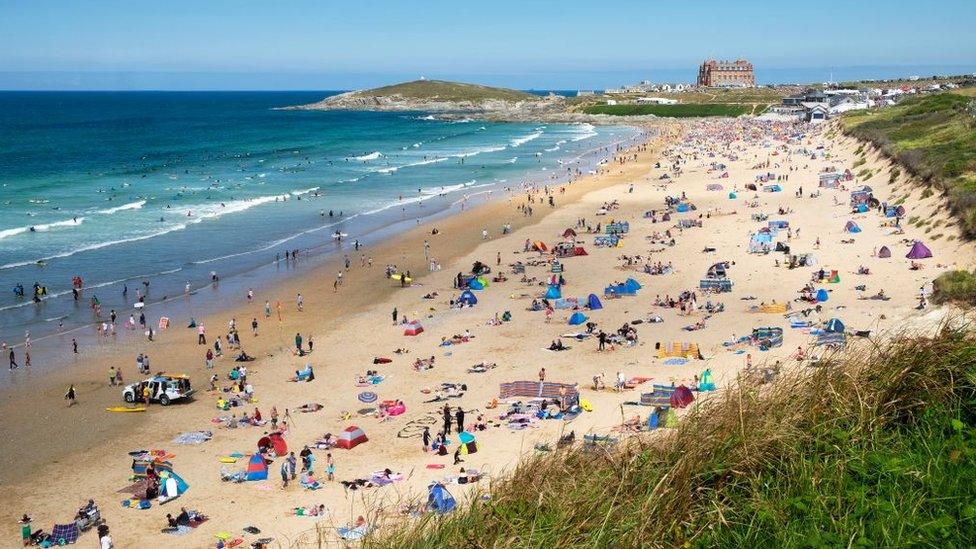
While Newquay's nightlife caused concern, the towns beaches have always been attractive to visitors
In 2009, Tracy lived with her young family in Newquay town centre. Life was pretty tough - they struggled to sleep at night due to the noise, were only able to drive "bangers" because of the number of times wing mirrors and wipers were snapped off, and were trying desperately to sell up and move away.
Her campaigning took up a lot of time.
"My focus was mostly the underage drinking and lap-dancing clubs which contributed to the antisocial behaviour," she says."They were just all feeding on one another and people were not being held accountable. There was a lot of vested interests and a lot of turning a blind eye."
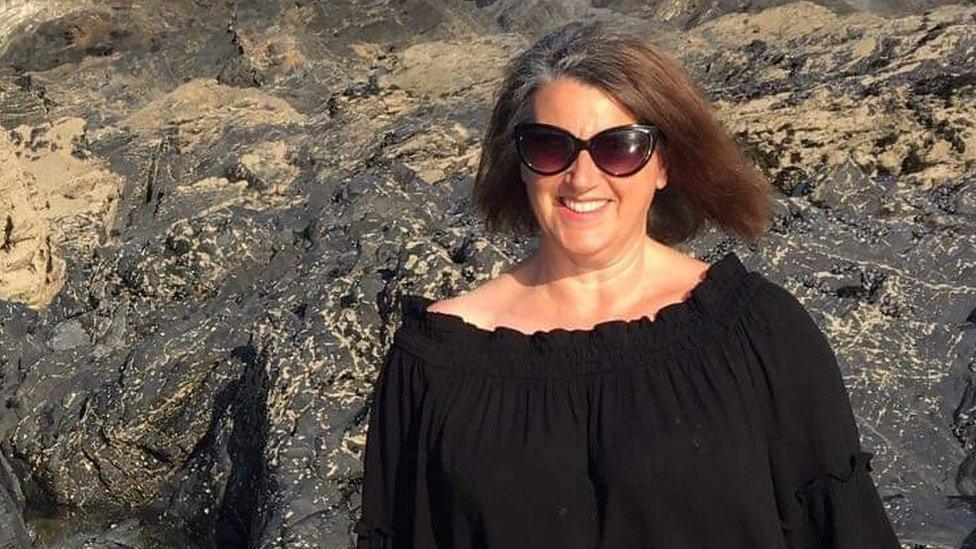
Tracy Earnshaw says she "very rarely" sees stag dos in Newquay now and the "underage kids have stopped coming"
Now she is pleased nobody wanted to buy her home and is glad she still lives in the town. She becomes emotional talking about how things have changed.
"It has been quite a phenomenal change, actually," she says.
"The less stag groups that came, the less anti-social behaviour there was. You stopped finding knickers in your front garden."
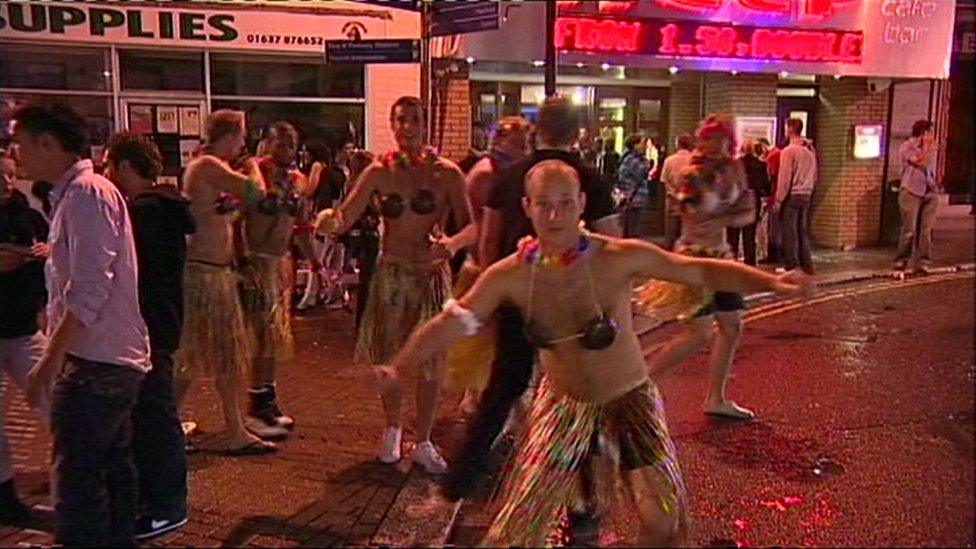
Newquay used to be a mecca for rowdy stag and hen groups
In the immediate aftermath of the deaths in July 2009, residents like Tracy rose up and marched on Newquay Town and Cornwall councils, demanding an end to the permissive culture in the town.
Soon measures were brought in to try to ensure young people's safety. Newquay Safe - an award-winning partnership between the council, police and about 20 other agencies - was set up and schemes like a bar crawl code of conduct, Challenge 25 and alcohol-free under-18s club nights all aimed to tackle the resort's problems.
At the time, Insp Dave Meredith was relatively new to the top policing job in Newquay. Tracy says Insp Meredith, who is retiring at the end of the month, was "instrumental" in changing the culture of the town.
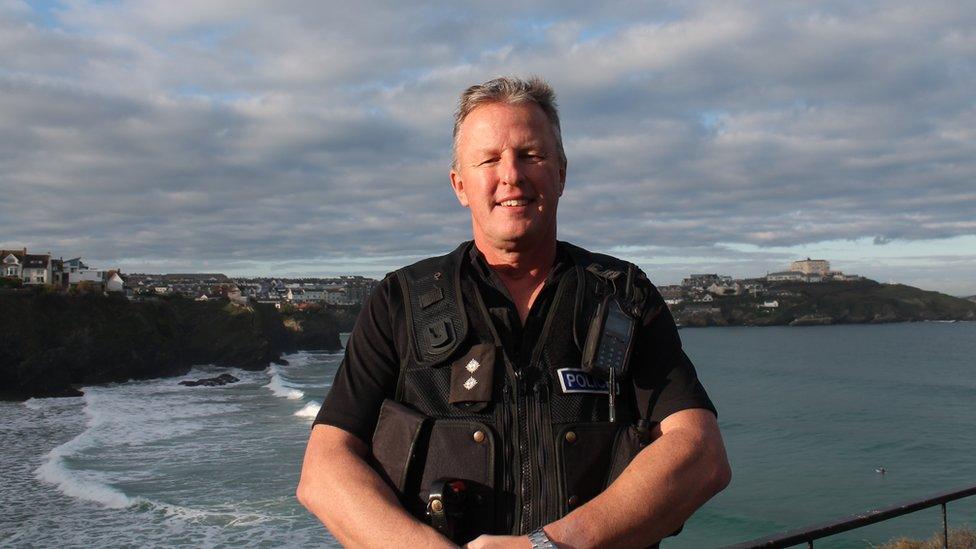
Insp Dave Meredith: "I have always been open and honest about my tough stance"
"He didn't really care who he upset by simply doing his job," she says.
"I would say he was the first person who actually looked at the problem and decided something should happen. He wasn't shy about going into licensed premises and saying 'what is going on here?'"
Insp Meredith says Newquay is "absolutely a different place" today.
Allow X content?
This article contains content provided by X. We ask for your permission before anything is loaded, as they may be using cookies and other technologies. You may want to read X’s cookie policy, external and privacy policy, external before accepting. To view this content choose ‘accept and continue’.
"It was sort of a Wild West town back then," he says.
"It was just power drinking and fighting and all that… I knew it was going to be a really challenging job. It is great that we have moved forward in 10 years from something that was causing concern to a lot of people. It was 10 years or so of hard work."
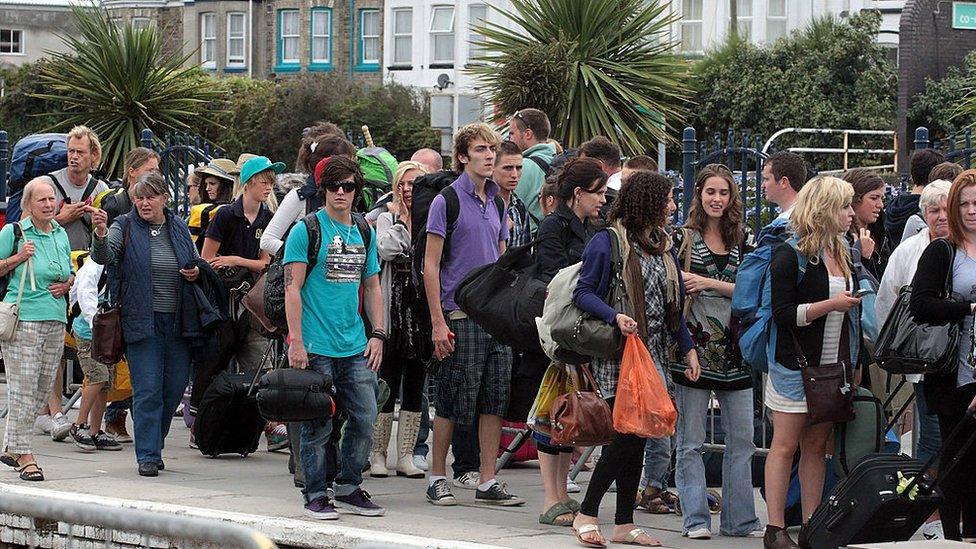
Police started meeting teenagers as they arrived in town to check their bags for alcohol and offer advice
He describes himself as "very forthright" and says he was an advocate of "robust" action.
He says one thing he looked at was the town's lap-dancing clubs. He found there was "compelling evidence showing issues with them".
"That is why we decided to take them to licensing review," he says. "I think Newquay is a far safer place with the closure of these lap-dancing clubs."
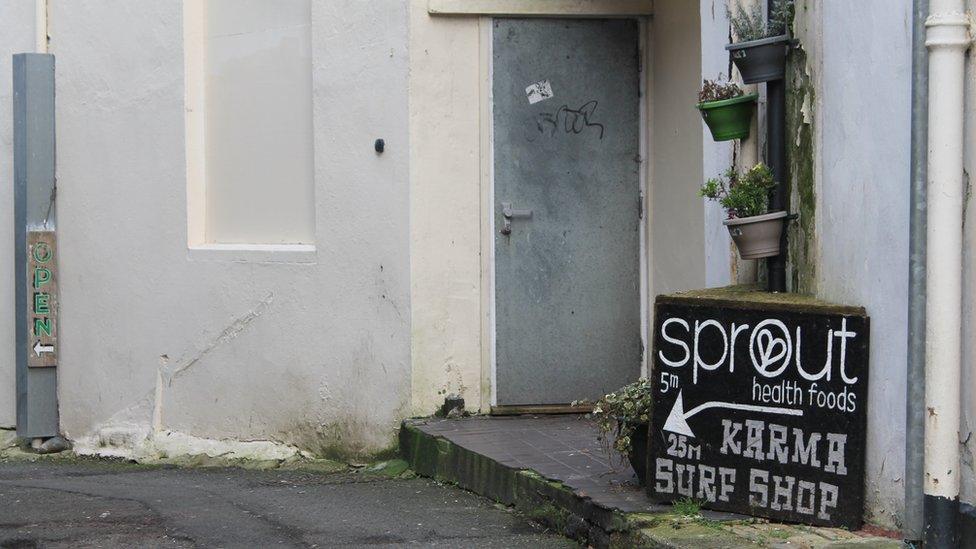
This alleyway used to be home to a sex shop but now hosts a health food store
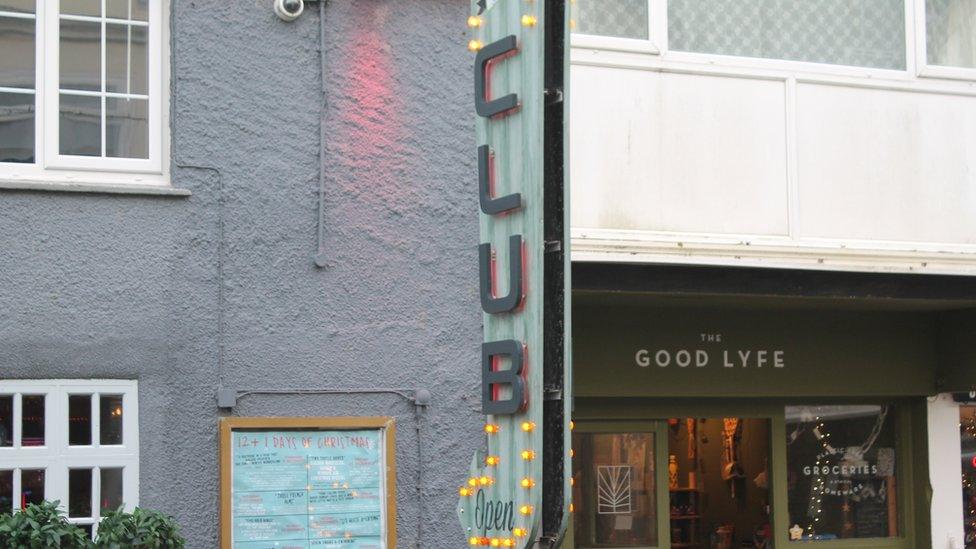
Newquay's pubs and clubs exist alongside ethical food shops, yoga studios and wine bars
This summer for the first time in many years Newquay's nightclubs and campsites did not run any dry nights for under-18s because there were no longer enough coming to make it worthwhile.
Insp Meredith says there is now a "very robust policy making sure that under-18s don't go into pubs and clubs". He says they work very closely with the licensees.
"They realise it is not worth risking their business by letting these people in," he says. "These days we don't have a real problem with underage drinking."
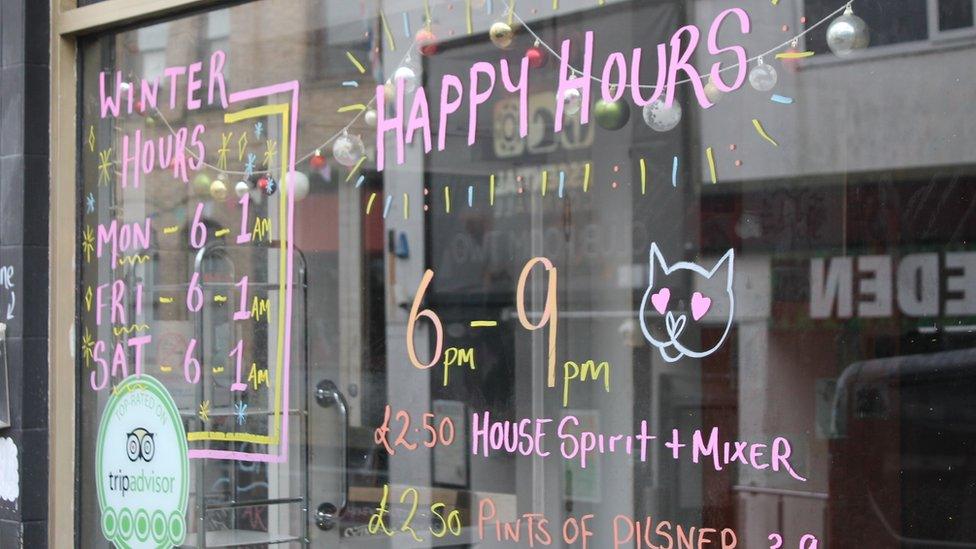
Newquay still has a busy nightlife but many venues close earlier and do not allow people in offensive dress through the doors
Another change has been what is acceptable for people to wear while out drinking in Newquay.
A mankini ban has been credited with helping to reduce crime and antisocial behaviour. Insp Meredith says this was never a police initiative but rather the venues banding together and deciding they no longer wanted customers dressed in that way.
Inflatable genitalia and T-shirts bearing offensive slogans were also prohibited in a code of conduct for the Newquay Pubwatch scheme, meaning people wearing or carrying such items would not get into venues signed up to it.
Robin Jones is one of the faces of the new Newquay - a town of upmarket cafes, wine bars and yoga studios. He owns a wine and tapas bar and says life and holidays here have become more family-orientated.
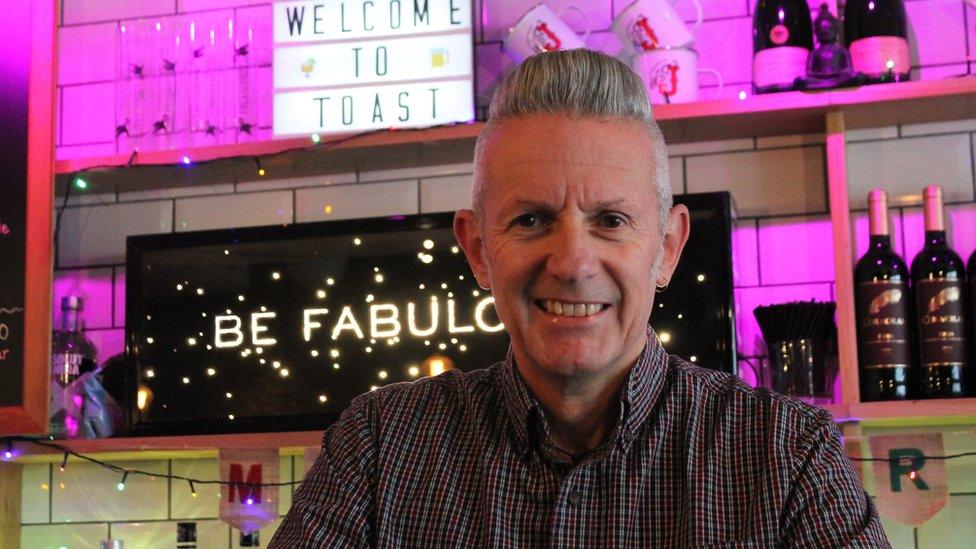
Robin Jones says he feels sorry for stag groups who come to Newquay not realising how much things have changed
Robin says he would not have wanted to live in Newquay in 2009 but moved to the town seven years ago and loves it.
"It is such a beautiful place around the beaches and the coastline," he says. "I think it was massively let down by the town identity and the culture that went with it. House prices have risen dramatically and I think that is attracting a different sort of person to the town. There happened to be three wine bars all started up about the same time three years ago."
He says he thinks their success is down to Newquay's new clientele wanting somewhere a bit more upmarket.
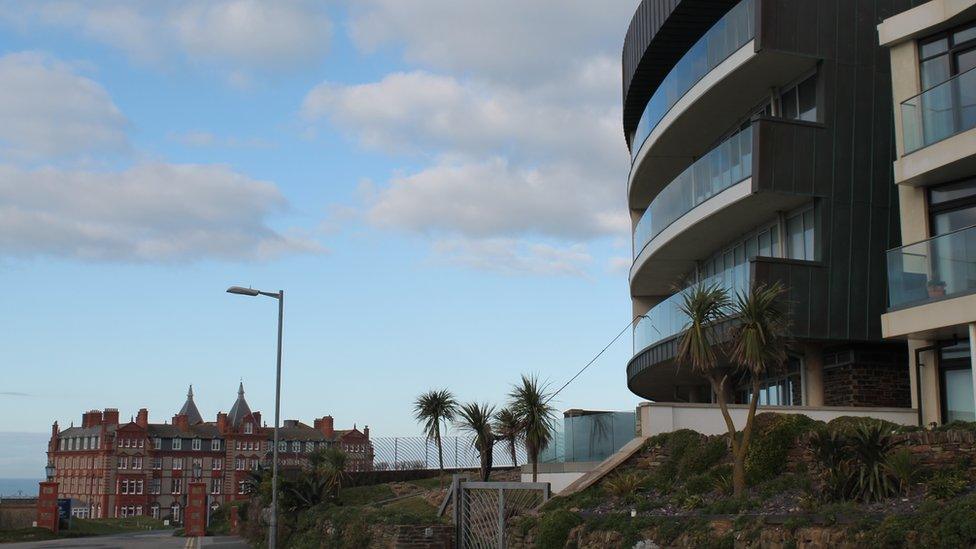
The evolution of the town has included the development of high-end apartment blocks
The entrepreneur says there are fewer stag and hen dos now and those that do come and dress up tend to get turned away. "A lot of the businesses won't let them in any more," he says. "I feel a bit sorry for them because they are walking around with nowhere to go to.
"All the people that come in the bar say what a different town it is and how much nicer and calmer it is."
Tourism data from Visit Britain, external shows Newquay does not appear to have suffered a big drop in visitor numbers since the changes. The tourism survey indicates there were 526,000 visits to the town in 2009 and 441,000 in 2010. Between 2016 and 2018 there was an average of 487,000 visits each year.
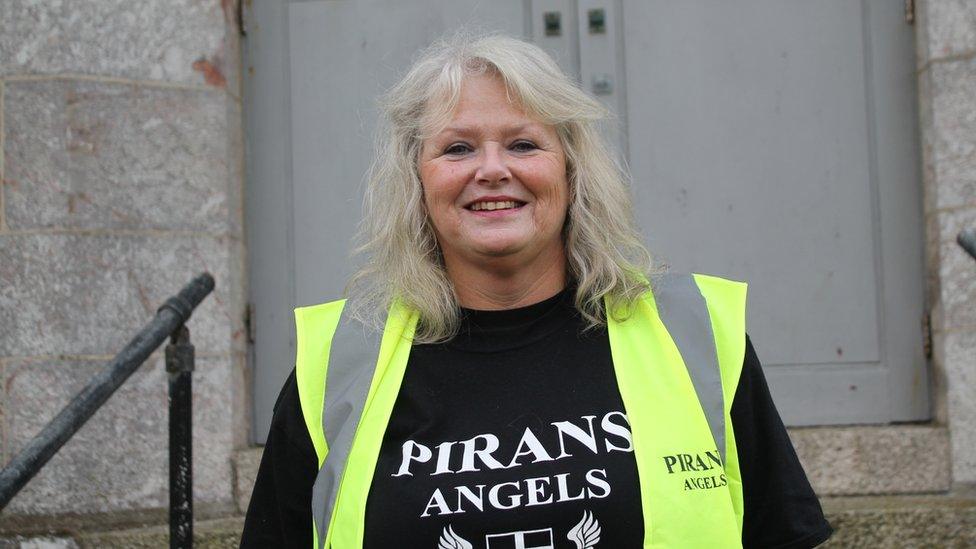
Debbie Anderson-Jones says the town is far less busy at night these days
You may also be interested in:
Debbie Anderson-Jones has also noticed how much calmer Newquay is. She started volunteering as a street pastor a decade ago and has seen the worst the nightlife had to offer.
The street pastor scheme has now ended and these days she runs Pirans Angels, which offers a similar service on a reduced number of nights.
Of the drinking culture, she says: "It started on a Saturday afternoon and [you used to think] if we are going to town we have got to get in and out before they start... by 10pm people were like 'you need to get off the streets because all hell will break loose'."
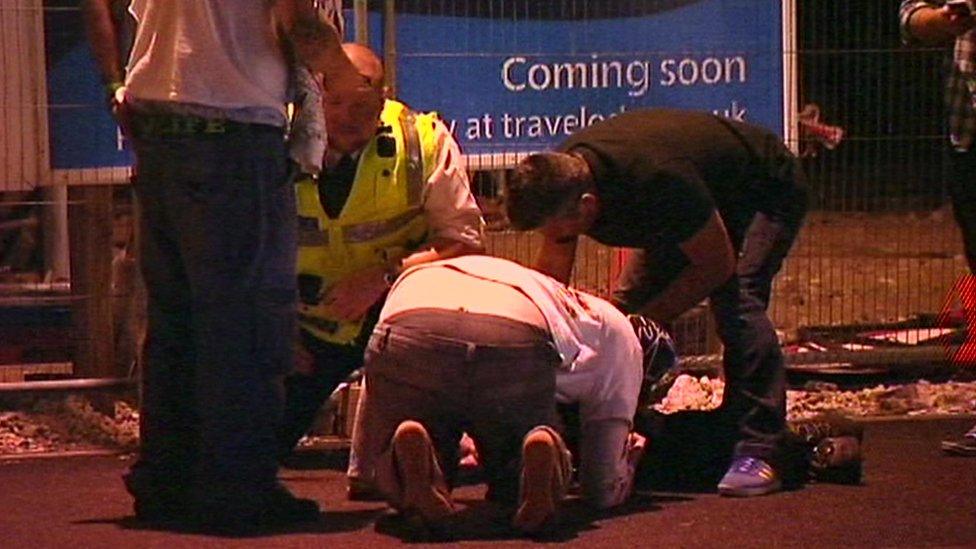
Debbie says scenes like this one are a rarity these days
She says they are now seeing far fewer people on the streets who have made themselves vulnerable through drink, and anyone who causes trouble is effectively instantly banned from all the other venues.
"If someone is difficult in one club, door staff and the cameras work together to identify that person and that group and relay that message to every pub and restaurant," she says. "If you are kicked out of one place you are not getting in anywhere. We will say to them 'I just heard what you did, you are all on CCTV, you might as well go home now'."
Debbie says the stag groups that still come are different from their predecessors and seem to want to do other activities as well as drinking.
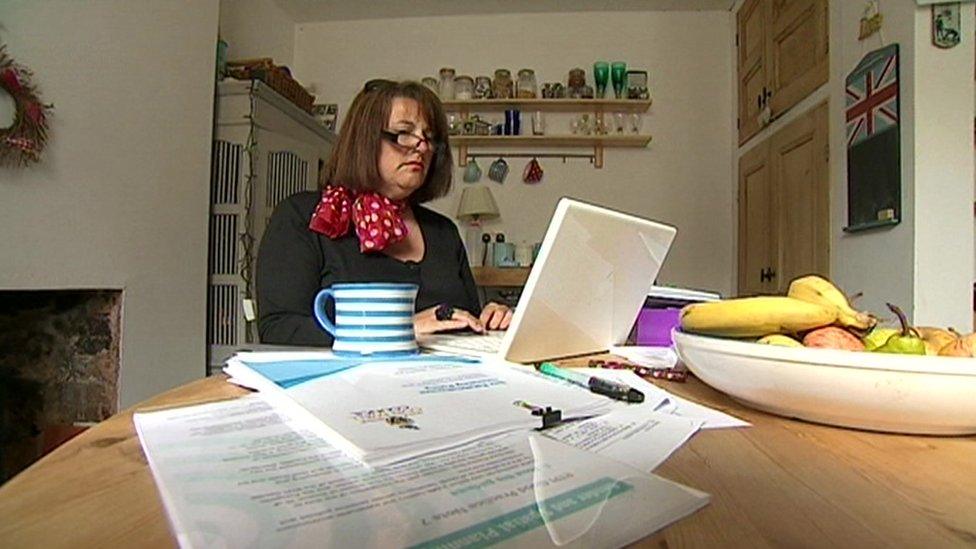
Tracy Earnshaw, pictured in 2012, no longer spends "far too much time" writing letters calling for change in Newquay
As for Tracy, she says her life has completely changed.
Recounting incidents of being flashed at and meeting a 15-year-old girl wandering the streets after being raped, she says she can't quite believe how much is different, and credits the change to the right people being in the right places at the right time.
"I think a lot of people will forever be grateful to Dave Meredith because he made a difference," she says. "These kids who were 15 and 16 were here to get hammered without any accountability... it was grim and we were made to feel guilty if you had a problem with it.
"You had to be really resilient. We always knew we were right and what was happening was wrong. It was unacceptable and actually it was against the law."
- Published28 June 2010
- Published9 August 2010
- Published20 October 2011
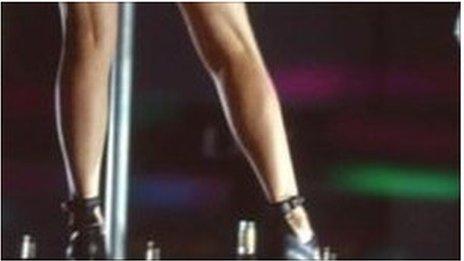
- Published21 October 2011
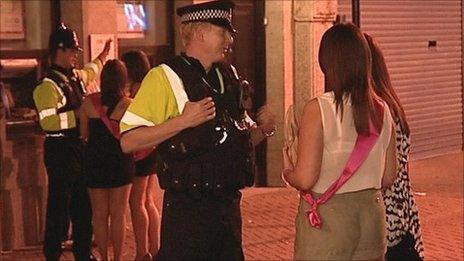
- Published12 July 2012
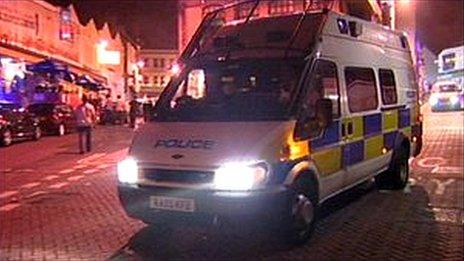
- Published28 September 2012
